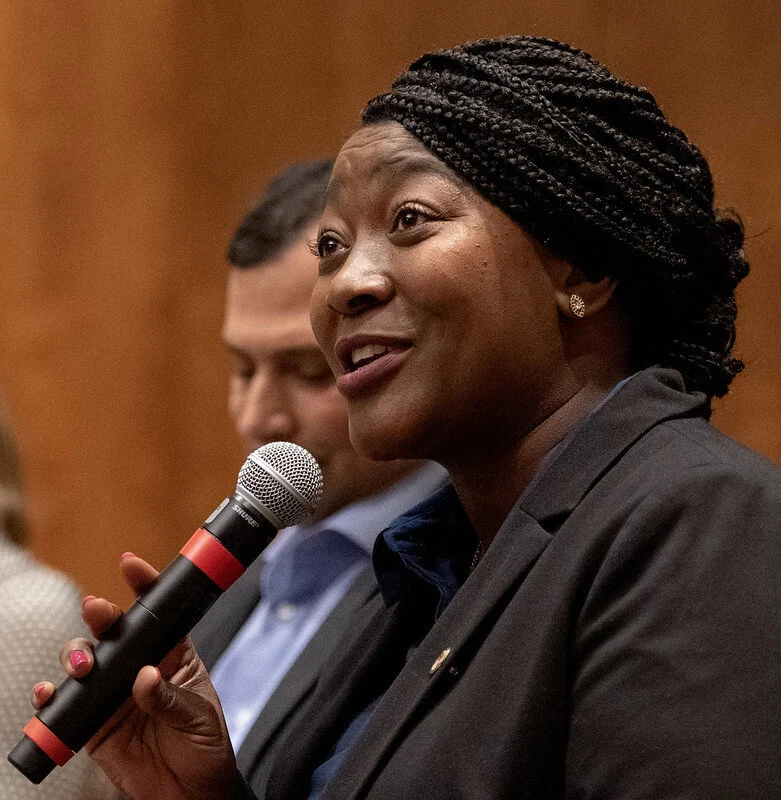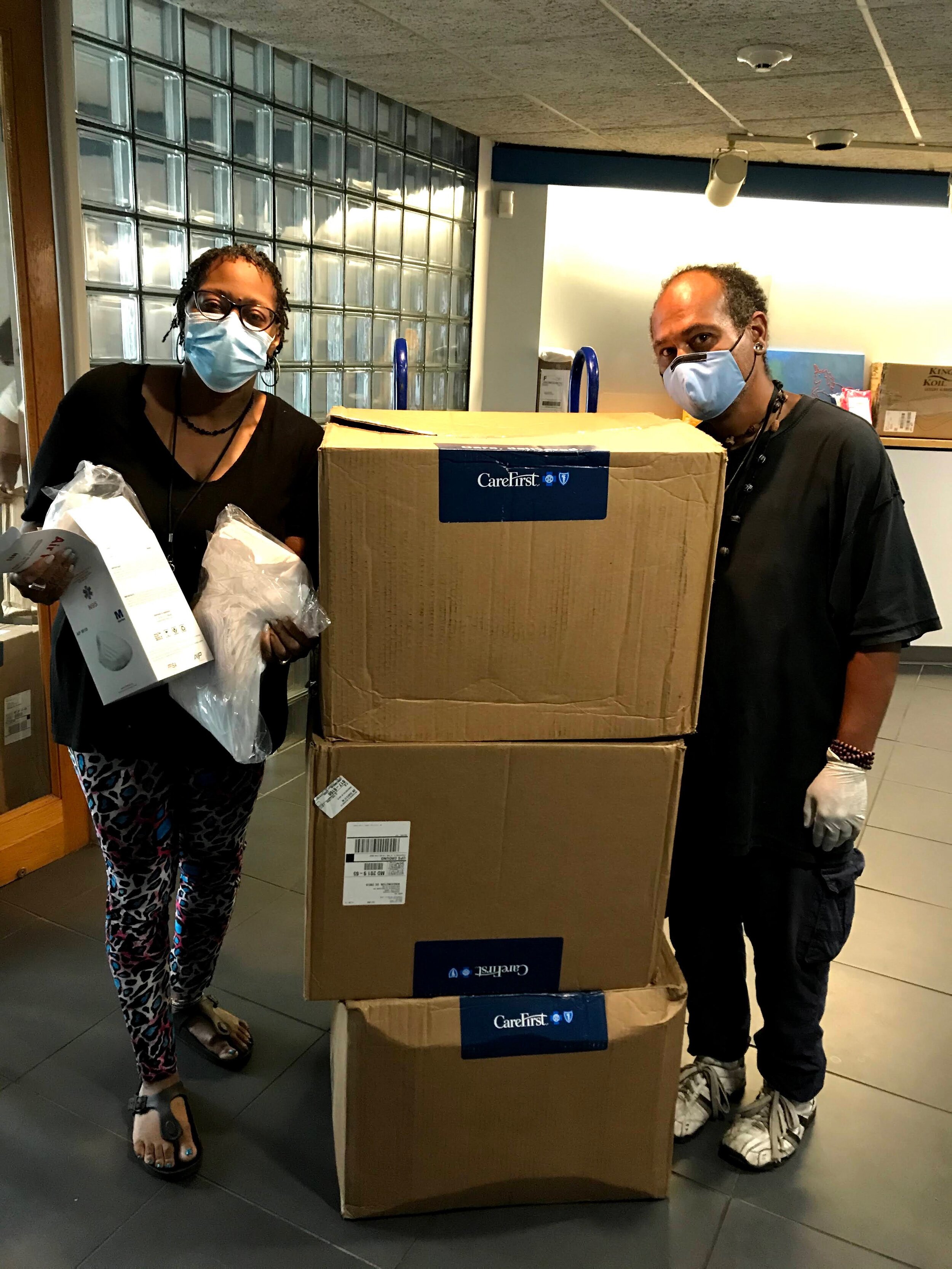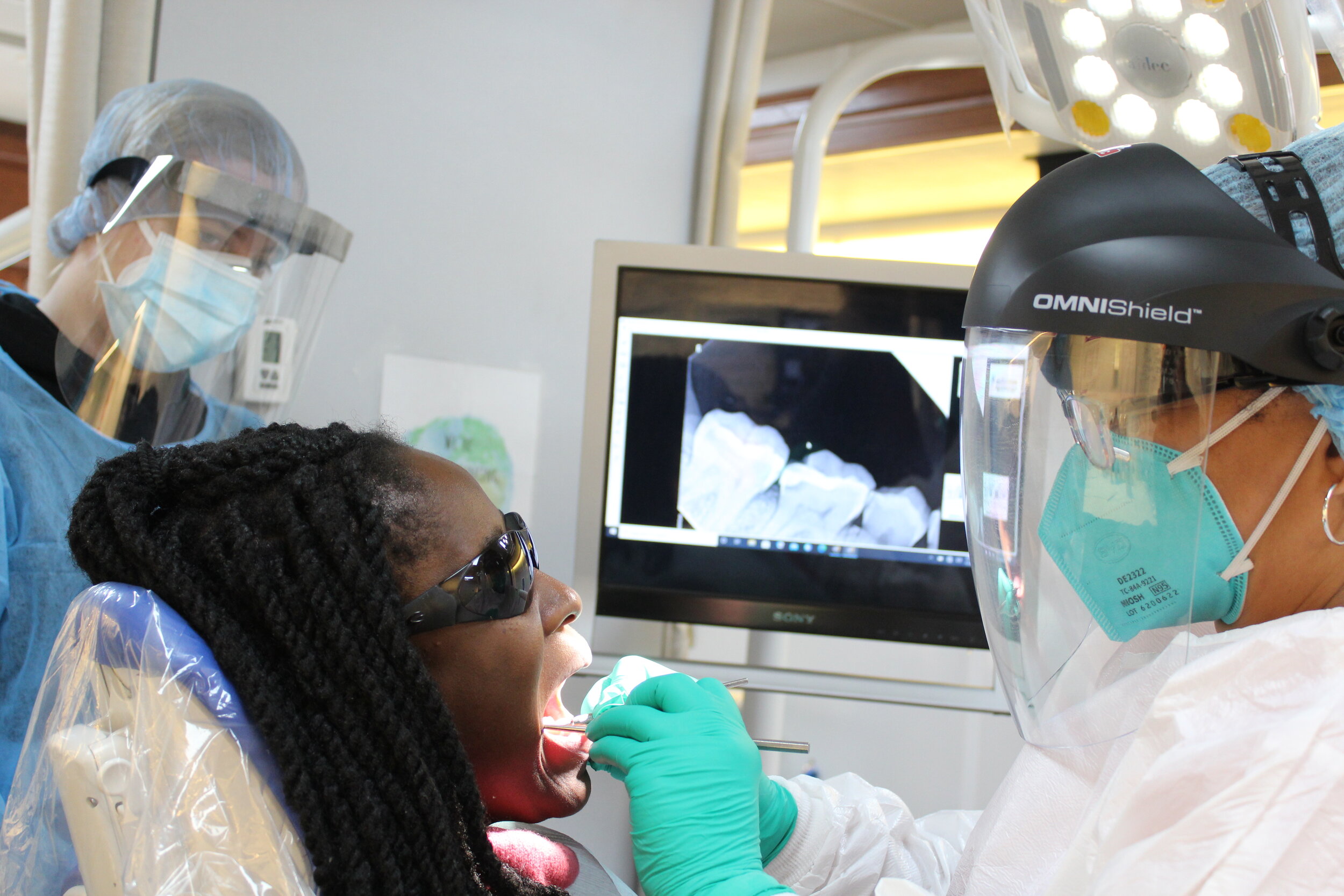Over the past year we have seen the impact of strong advocacy and organizing efforts, both here in DC, and across the country. In DC, undocumented workers who were left out of traditional unemployment insurance and other public aid, successfully advocated for financial assistance through the DC Cares Program, which has issued over $14 million in relief funding. Thanks to advocates here and across the country, we have also seen rental assistance and renter protections included in local and federal legislation.
Yet, as this crisis continues, we know there is still work to be done. In DC, many neighbors are behind on rent and people experiencing homelessness remain at high risk. A new study shows that housing for all and eviction moratoriums could have saved 164,000 lives during the COVID-19 pandemic. This evidence demonstrates what we already know: that housing is healthcare, and housing saves lives. As private philanthropy and as individuals, our resources are limited but by supporting advocacy and organizing, we can both leverage our investments and shift power to those closest to the work and best able to identify solutions.
Announcing New Grants to Nonprofits Advancing Housing Justice
This month, we are incredibly excited to announce $310,000 in grants awarded to 7 DC organizations that are working to increase resources to end homelessness and to advocate for policies and funding to increase the supply of deeply affordable housing in DC.
As a part of our commitment to racial equity and addressing racial disparities, we prioritized efforts developed and led by communities most impacted by homelessness and housing instability. We know that by supporting these efforts, we can continue to build power in these communities and move toward the transformational change needed to ensure everyone has housing they can afford.
Join Us to Stand for Change
In addition to our grantmaking, we will continue to advocate for the issues that impact our neighbors experiencing homelessness and housing instability. On March 17 at 12 noon, we are hosting a virtual panel, Standing for Change: Advocating for Housing Justice, a special conversation discussing how you can help advocate for housing justice. We’ll examine how we can work together to advocate for a more healthy and equitable community through stable housing.
Thank you for standing with us. We look forward to your continued partnership as we work to end homelessness in DC.
Down Payment Grants for a More Just Future
At The Community Foundation, we are proud to partner with Flock DC, a DC-based real estate firm, on the birdSEED Foundation, a new housing justice program offering targeted home-buying assistance to Black and Brown DC residents. BirdSEED is responding to a history where Black people have long been denied access to opportunities for homeownership and/or targeted by predatory lending practices. Learn more about the fund and how to apply on their website.
About the Partnership to End Homelessness
The Partnership to End Homelessness, led by the Greater Washington Community Foundation and the District Government’s Interagency Council on Homelessness (ICH), brings together the public and private sectors to ensure homelessness is rare, brief, and non-recurring in DC. We believe that all DC residents deserve a safe, stable, and affordable place to call home.
By joining together, we will increase the supply of deeply affordable housing, help everyone find a home they can afford, and help more people access housing and exit homelessness more quickly.
Get Involved
Every action, whether large or small, can make a difference in ending homelessness. Visit EndHomelessnessDC.org and sign up to receive updates on ways to get involved.


















